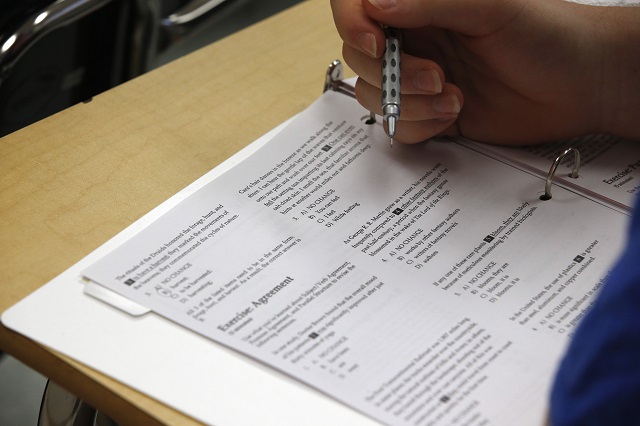
(AP Photo/Alex Brandon)
If you were asked to describe your personality, you might choose words such as “funny” and “outgoing,” or “shy” and “quiet.” But what if those were not quite the right words? The Myers-Briggs - which many of us have taken - promises to assess your personality, and assign you a specific “type.” In her book, The Personality Brokers: The Strange History of Myers-Briggs and the birth of Personality Testing, Merve Emre examines the Myers-Briggs Type Indicator (which is its full name), and how it has transformed the way we think about ourselves and those around us.
Three Takeaways:
- You shouldn’t worry about getting the wrong answers on the MBTI. It’s not a test. At least that’s what the people who oversee the MBTI say. Emre explains that it isn’t designed to label people as good or bad based on their personalities. But rather, it’s an assessment tool that indicates your preferences and provides a general understanding of what makes you, you.
- The MBTI’s simplicity and practicality was appealing to employers during the labor force boom after World War II. Emre says that it helped employers match potential employees to jobs suited to their personalities (and it was sometimes used as a test to see whether you should maintain your position). Other institutions including universities, churches, and even the military have used the Myers-Briggs in their screenings. And that, Emre suggests, has given people the impression that they’re finding their niche in life.
- Today, there are plenty of personality tests that are perceived as more reliable and scientific than the MBTI. But Emre says that the importance of the Myers-Briggs hasn’t waned, and its legacy is likely to live on for years to come.
More Reading:
- In a competitive job market, professional success isn’t enough to get you hired. Business News Daily reveals the traits that most employers look for in potential candidates.
- If there are parts of your personality that you’d like to adjust, The Atlantic has found research that suggests that it’s possible.
- Have you ever wondered why BuzzFeed quizzes are so addictive? The Huffington Post has the answers.

